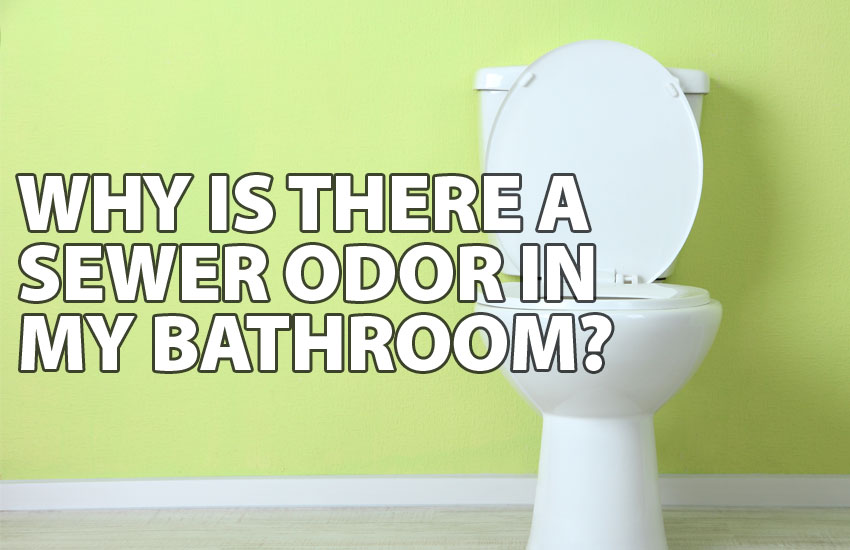Have you ever walked into your bathroom and smelled an unusual odor? Well, that’s probably happened a few times, actually!
But have you ever clearly noticed a sewer smell in bathroom that is just undeniably strange? If so, it could be coming from an external source – from the actual sewer itself. And if that’s the case, it’s important to take action as soon as possible to get rid of it.
This sewer smell is certainly not pleasant, but more importantly, there’s a chance the smell could actually be a serious safety hazard. Methane that’s found in sewer gas can be flammable in large amounts. If this issue is left unresolved, sewer gases leaking into your home can also cause headaches and other serious health problems, so it’s definitely not something you want to ignore.
There are a few reasons this smell could appear out of nowhere in your home’s bathroom. It could be a smell coming from toilet, or it could be something else. Check out our guide below to get a better idea of where exactly this sewer smell in the bathroom could be coming from.
Reason #1 for Sewer Smell in the Bathroom: Water in P-Trap Has Evaporated
The first reason you could be noticing a sewer gas smell in bathroom has to do with the water in your bathroom’s P-Trap evaporating, which leaves the room susceptible to odors. So what is the P-Trap and why do you need it? It’s the section of piping underneath your sink that is shaped like a “U.”
In normal plumbing circumstances, when everything is working well, a little bit of water remains in the P-Trap after you do the following: flush your toilet, turn off the faucet or empty the bathtub in your bathroom.
This bit of water that regularly remains in the P-Trap basically acts as a barrier. As you can see in the image above, the water prevents sewer gases from entering your bathroom.
Who knew standing water was so effective in blocking an unpleasant sewer smell from toilet?
Here’s something you can do on your own. Try pouring about a quart of water into every drain within your bathroom. This should do the trick to fill the P-Trap and block the odor. It’s normal to hear gurgling sounds after you do this. If the odor doesn’t go away shortly after, there may be something else causing the smell.
Reason # 2 for Sewer Smell in Bathroom: Improperly Installed or Cut Vent Pipe
This something else that’s causing the sewer smell from toilet could have to do with a poorly installed or cut vent pipe. The vent pipe is supposed to send gas odors outside your home so you don’t smell them; however, sometimes a contractor vents these pipes to the wrong place, which is why you notice the smell.See if you can identify where the smell is coming from. If it seems like it’s coming from the wall, it’s most likely an issue with the vent pipe.
A vent pipe can also have a crack that allows the odor to spill out. To find this crack, professional plumbers can use a smoke machine (don’t worry, it fills your pipes with harmless smoke); once the smoke leaks out, your plumber can locate the leak and fix it.
Reason # 3 for Sewer Gas Smell in Bathroom: Buildup in Your Sink’s Overflow
And here’s reason number three that could be causing that annoying sewer smell. Check to see if your sink has an overflow mechanism. As shown in the image above, this hole provides a bit of relief if the sink is overfilled. Like most appliances near water, it can build up grime in no time, so it could be contributing to the smell.
Using a small bottle brush, try cleaning out the overflow hole to wipe away any buildup. You can also use a turkey baster to mix a solution of half chlorine bleach and half water. This will help clear out any grime (never mix chlorine bleach with anything else but water!)
What if These Do-It-Yourself Solutions Don’t Eliminate the Sewer Odor?
If none of the above mentioned quick fix solutions get rid of the sewer smell, it’s wise to call a professional plumbing company to investigate more thoroughly. Professional plumbers will not only pinpoint the exact cause of the odor; they’ll also have the knowledge, experience and professional tools to eliminate it for good.


